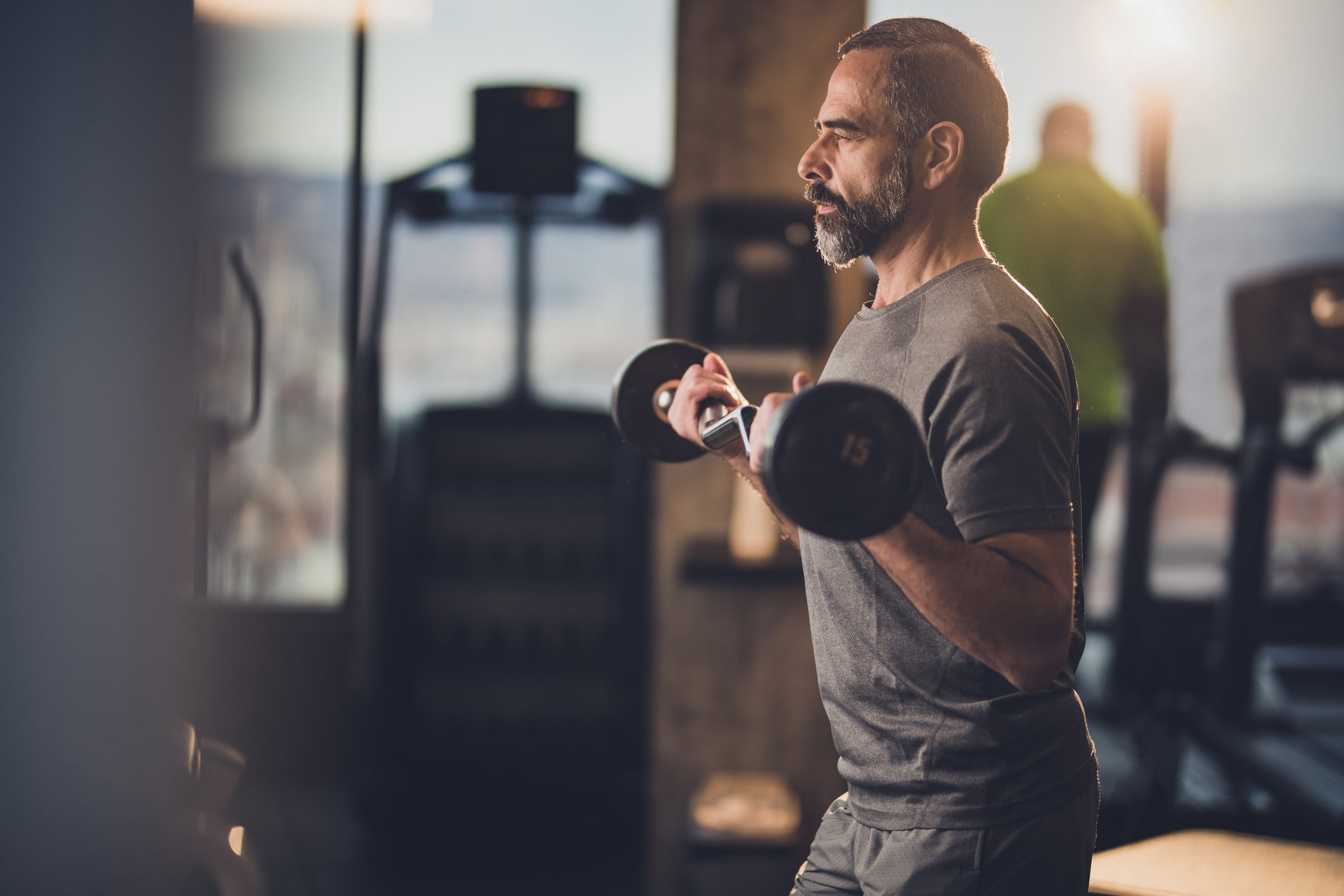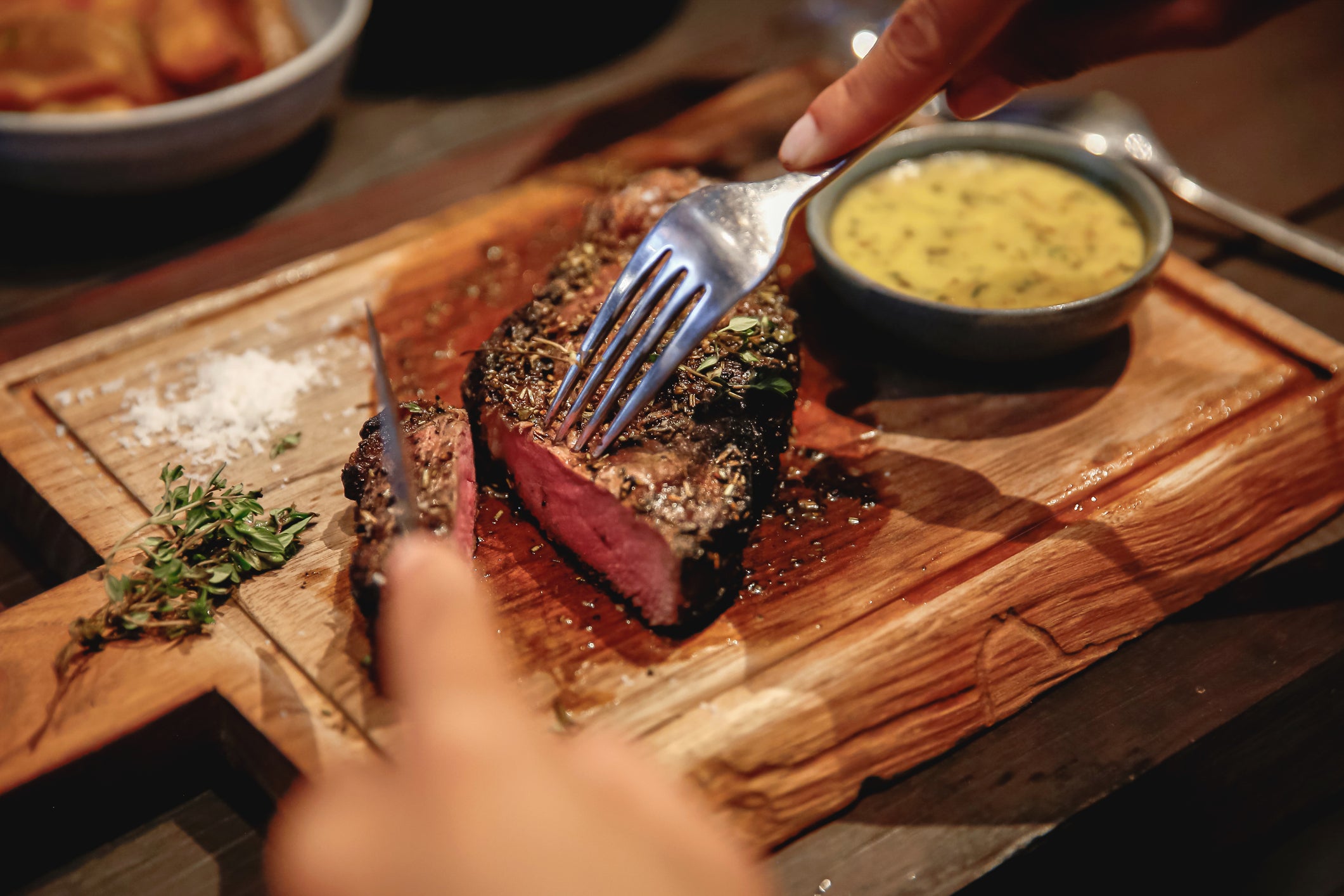Trying to build muscle? It doesn’t really matter what kind of protein you eat after weight training, researchers announced this week following a new study.
Eating plant or animal-based protein will do the trick, they said, challenging a long held notion.
“The longstanding belief or the current dogma was that animal-based protein sources were better, particularly for the muscle-building response,” Nicholas Burd, a professor of health and kinesiology at the University of Illinois Urbana-Champaign, said in a statement.
Burd led the study with former graduate student Andrew Askow. It was published on Monday in the journal Medicine and Science in Sports and Exercise. It was supported by the Beef Checkoff program, which was overseen by the National Cattlemen’s Beef Board.
Previous studies had found that muscle biopsies after a single feeding showed an animal-based meal provided more of a stimulus for muscle protein synthesis than a vegan meal, he noted. However, measurements taken after a single meal might not reflect the effects of a balanced vegan diet, he cautioned.

Burd’s lab recruited 40 healthy and physically active men and women between the ages of 20 and 40 to examine how vegan or meat-based diets influence the rate of the process in which protein is produced to repair muscle damage after intense exercise — eventually leading to muscle gain. The experiment also tested the hypothesis that a moderate protein intake should be distributed evenly throughout the day to maximize muscle growth.
The recruited participants underwent a week-long “habituation diet” to put them on an even nutritional playing field, and then were assigned to either a vegan or meat-eating diet.
Some of the meals the lab provided for them were eaten in the lab. Most were consumed at home. The meat diet included beef, pork, chicken, dairy, and eggs. The vegan diet balanced the amino acid content of their provided meals, the study’s authors noted. Amino acids are the building blocks of proteins.
The groups were divided once more into those who ate roughly the same amount of protein at each of three daily meals, and those whose intake varied across five meals eaten daily.

All groups participated in muscle-strengthening activities in the labs every three days, wearing accelerometers to track their activity levels at home.
Lastly, the participants drank what is known as “heavy” water. Instead of hydrogen, the atoms are replaced with a heavier fingerprint of the element. Those replaced atoms allowed the researchers to trace where they went in muscle tissue, and they took samples of tissue from participants’ leg muscle at the beginning and end of the trial.
Ultimately, they found there were no differences in the process in which protein is produced to repair muscle damage between those eating vegan or omnivorous diets. Researchers also found that protein distribution across the day had no effect on the rate of muscle building.
Burd said the results surprised him.
So, what’s the best kind of food to eat to gain muscle?
“It’s the kind you put in your mouth after exercise. As long as you’re getting sufficient high-quality protein from your food, then it really doesn’t make a difference,” said Burd.

